Life And Time Of Mariere As Gov Of Defunct Mid-West Region-Daughter

LAGOS NOVEMBER 13TH (URHOBOTODAY)-A man of many parts, the late Samuel Jereton Mariere was one of the nation’s founding fathers that contributed immensely to Nigeria’s Independence movement.
Born in 1907 he was the first governor of the former Midwest State of Nigeria from February 1964 to January 1966. He was also the first chancellor of the University of Lagos, Akoka, Lagos and the first president of the Christian Council of Nigeria.
In 1935, Mariere was elected secretary-general of the Urhobo Progressive Union, an association created in 1931 to articulate and chart a direction for the Urhobo people. He was subsequently created a traditional chieftain by them, becoming the Olorogun of Evwreni in 1953. He was elected a member of the Nigerian House of Representatives for the Urhobo East and later Central district. Mariere was a leader of the agitation for creation of a new region out of the old Western Region, which was dominated by the Yoruba. The Mid-Western Region was created in 1963 after a plebiscite in which all the Urhobo divisions voted unanimously in favor, and Mariere was later appointed the first governor. Following this he was given two other aristocratic titles, that of the Onisogene of Aboh in 1964 and that of the Ogifueze of Agbor in 1965.
Mariere died in a vehicle accident in 1971. A student residential hall is named after him in the University of Lagos, with a life-size statue at the entrance.
In this interview with one of his daughters, Mrs. Dora Evuen, OLAOLU OLADIPO probed into the life and times of the first and only governor of the now defunct Mid-West Region.
Excerpts
Late Chief Samuel Jereton Mariere was one of the nation’s founding fathers; he took a very active part in the processes leading to the country’s Independence from the British. He was an educationist and a businessman; what kind of a father was he to his children and what kind of husband was he to his wife?
Daughter:I won’t be in the right position to assess my late father as a husband to his wife but what I can tell you though is that he was a very good father to us. He was very religious and was very particular about progress and discipline for his family. He was a disciplinarian to the core. He made sure that all his children, both male and female, were properly trained. We all went to school. None of us was left out or deprived of the privilege to go to school.
That was his primary desire. Apart from that, as father, he expected you to utilise whatever you studied in school. When we all finished from the secondary school and we proceeded to tertiary schools, he was very delighted. One thing was that whenever any of us went job seeking, he wouldn’t want you to use his name to curry advantage.
He wanted all of us to get whatever we wanted on merit. He was of the view that we should compete with others for opportunities and not to use his name as an advantage. He was very religious and that reflected in what we did every morning in the house when he rang the bell early in the morning to wake us up for early morning devotion. He made sure that we all gathered in the house to say our morning and evening prayers as a family unit.
You talked about him being a disciplinarian, was there any occasion where he had to wield the stick against you?
Daughter: To him, there was no need for that. As a young girl growing up at home, I had to be dispatched from Agbor to Lagos to join my senior sister who was being betrothed at that time to a man. He wanted my sister to be taken care of by her own younger sister. I was the one that was chosen to go with her to her new home, so I left the house at the age of 12. It was in Lagos that I attended primary school before going back home to Agbor to attend Baptist Girls High School. He was not someone given to flogging children. He would guide you and as children, we all understood him and in the end, we grew up to be well disciplined individuals. We all followed his footsteps. At home, there was no need for flogging but occasionally when he saw the need, he wouldn’t spare the rod.
You talked about the family doing early morning devotions; could you let us into what his normal day was like?
Daughter: He was the general manager for John Holt in Agbor, so he had his day well cut out for him. When he woke up for his devotions, he would take his breakfast after having his bath and then went to work. He would be at work till 5pm. That was what was obtained in John Holt at that time. It was his duty to ensure that sales were good and everything went on smoothly. When he came back, we always ran to remove stockings from his legs. His dress code then was a top and a pair of knickers and helmet. My father was very meticulous and he had records for everything he did. There was a time his political associates were trying to rubbish him by accusing him that he spent some funds illegally, he brought out the records to show that everything that was given to him was quite spelt out. He also documented how he distributed the items by stating in detail who received what and what. He was not the type that was given to corrupt practices.
Could we talk about his political engagements?
Daughter: He was one of the leading lights of the NCNC. While growing up, what was the house like whenever he received his associates? Like I said before, I wasn’t with him in Agbor. I left for Lagos at the age of 12 and unfortunately, I didn’t have the opportunity to see all that was going on in Agbor at that time. One thing I know for sure was that he was very thorough in his dealings. He kept his records properly. I know that meetings were held in his house from time to time. He ensured that those meetings were properly held. I don’t know much about his political engagements at that time.
Did you have the privilege of seeing prominent chieftains of the NCNC at that time, I mean the likes of Okotie-Eboh, Fadahunsi, Azikiwe and the likes when they visited your father?
Daughter: I never did because I was in Lagos and not in Agbor.
Where were you when he was the governor of the Midwest Region?
Daughter: I had returned to Agbor then. I was already in secondary school.
Did you ever have the opportunity of living with him at the Government House in Benin?
Daughter: No! I didn’t.
So, he didn’t allow any of his children to live with him?
Daughter: Some of us were there with him, especially the younger ones, and I know that the most senior boy who is now late was there with him at the Government House. One of my own younger brothers was there with him too. I wasn’t there.
Do you remember any remarkable event that took place when he was the governor?
Daughter: I can’t recollect anything but like I said, he was thorough and he liked keeping records of his actions as an individual and I think he took that aspect of his character to the government.
Up till now, the MidWest remains the only state to have been created democratically in the history of the country. He alongside the late Dennis Osadebay and others were instrumental to the creation of the MidWest from the then Western Region. Was there any occasion when he told you about the role he played in the agitation?
Daughter:I might not be able to answer this question because we (the children) were not politically inclined to be able to ask him. What is known to me was that he, alongside others, fought at every angle to ensure that the dream of realising the emergence of the new region came to pass. One individual who could have attested to the role played by my father was the late Dr. Samuel Ogbemudia who too was very much involved in the agitation. My father was very glad to handover to him (Ogbemudia) as the military governor when the First Republic was overthrown. All I know is that my father made sure that everything that needed to be done was done for the actualisation of the new region.
Unfortunately, your father didn’t live to see the Second Republic because he passed away in 1971…
Daughter: (Cuts in) Yes! He died in a road accident while returning from his village to attend a thanksgiving. He died very close to Benin in a road accident.
Where you when he died and what were your immediate reactions?
Daughter: I was in London when the news broke. What else could we have done? It was painful but we had to brace up to the realisation that he was no more. At that time, we were so young and nobody among us was financially well off to be able to take up the responsibility of according him a proper and befitting burial but in the end, the Bendel State Government took over to ensure that he was accorded a befitting state burial.
So, he was given a state burial?
Daughter: Yes! He was given a state burial.
Are you in any way satisfied with the efforts of the government to immortalise him?
Daughter: It is unfortunate that Nigeria is not a country where people recognise those who have made invaluable contributions to national development when they are gone, especially those who didn’t steal government money. Nothing has been done to immortalise him, even in Benin, which was the capital of the old Midwest which he fought for while alive. I am not satisfied and I know that most family members are not satisfied with the government but what can we do? While alive, he built a road passing through my village and knows that the people have never forgotten that till tomorrow. The kind of politics during my father’s time is different from what we have today. There was a statue of him at the Government House some time ago but I don’t know what happened to it.
(Saturday Telegraph)









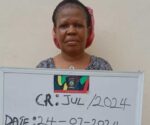

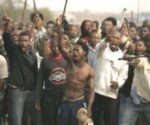



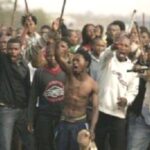

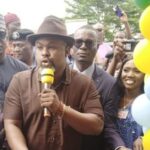

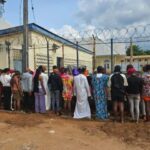

Thoughtful and calls for dipper reflection. May his gently soul continue to rest in the bosom of his creator IJN.